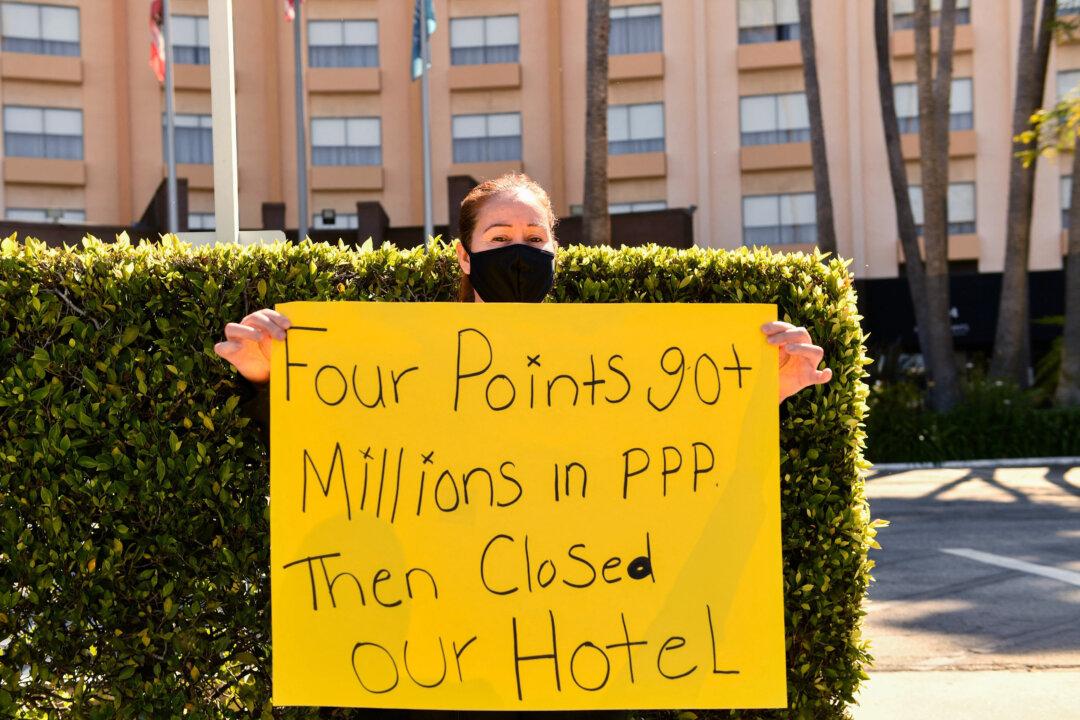Federal officials forgave $809 million in Paycheck Protection Program (PPP) loans handed out during the COVID-19 pandemic in 2020 to more than 100 of the nation’s top law firms and another $635 million given to hundreds of elite accounting offices, according to a new analysis of government spending to be made public on Dec. 2.
As described by the Department of Treasury, the PPP was established in 2020 to provide “small businesses with the resources they need to maintain their payroll, hire back employees who may have been laid off, and cover applicable overhead.”





